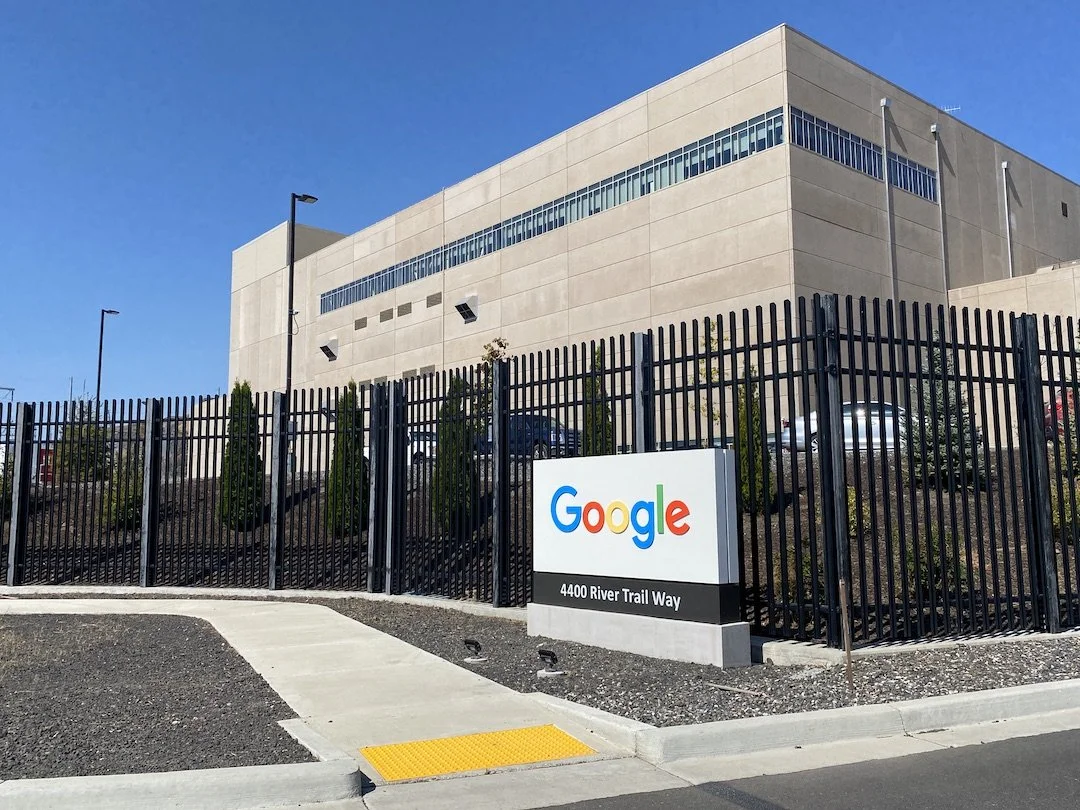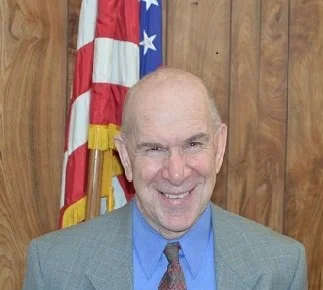Google looks to be a go in The Dalles
Editors Note - The Dalles City Council has postponed discussion on the water agreement with Google until November. CCCNews will provide detailed stories on the water agreement when the meeting date is set.
By Tom Peterson
After more than a year of negotiations, it appears The City of The Dalles and Google are on the cusp of an agreement on property tax abatements as well as fee payments for the construction of two new data centers on former aluminum plant property in the Port of The Dalles.
City Council is set to vote on the Google deal at its regular meeting Monday, Oct. 25 at 5:30 p.m. Here is the link to attend the meeting via ZOOM.
Wasco County Commissioners approved the agreement on Wednesday, Oct. 20, after receiving no public comment.
Such agreements throughout Oregon and nationally raise the ire of locals who don’t believe that some of the world’s largest companies should receive tax breaks.
Multiple communities in Oregon including Prineville and Umatilla have both utilized tax abatements to bring large company data plants for Facebook and Apple. Such plants use millions of gallons of water a day and are a big draw on the electrical grid.
The Dalles Mayor Rich Mays
If Council approves the agreement, it could abate some $147 million in property taxes during the two 15-year terms of the deal.
At the same time, the agreement captures 50 percent and 60 percent of total property taxes - which is much more than past Google deals for data centers in The Port of The Dalles. Mayor Rich Mays has stated the deal represents up to $125 million in revenues for the community over the life of the agreement.
The money will come in the form of reduced property tax payments and two different fees that will provide money for community investments that are yet to be determined.
For a run down on Google payments see CCCNews’ original story.
A different point of view
Economist David Swensen
Economist David Swensen differs in opinion when it comes to the overall benefit to a community for offering huge property tax breaks for companies building data centers.
He watched it and studied it in West Des Moines, Iowa.
He said of the proposed $1.2 billion Google is willing to spend, a small fraction would go to benefit the community.
He said they should not be given tax breaks unless they produce a lot of high-paying jobs.
Swensen is an award-winning community economics research specialist at Iowa State University and has a Masters’ Degree in Urban and Regional planning. He’s studied data plants in The Dalles.
“These companies come in with a huge number for investment, but it is a red herring,” he said. “The amount of increase it produces in the economy is not in relation to the geographic footprint they create. The leverage they exert over the community is disproportionate to the contribution they commit.”
Essentially, Swensen said that data center building supplies are not regionally sourced and their construction relies on outside contractors. What a community is left with is about 45 permanent jobs per data center. The numbersof employees per data center run a bit higher at Google, said Wasco County Commissioner Scott Hege.
“These are not high-tech jobs,” Swensen said. “There’s no research and development. The highest-paid employees are in and out of the data centers.”
He said that left essentially security, service workers, landscapers and people monitoring the plants.
“They’re ok jobs,” he said. “And they pay Ok. But there are not a lot of them.”
Swensen’s point was that for Google to have a beneficial impact in the community it should be employing 500 to 1,000 local people at good wages - at $100,000 annually. Especially for the amount of industrial land, energy and water resources it requires.
A little theory
He said the impact of 1,000 jobs would be beneficial as local spending would increase at local businesses, greatly improving the wealth of residents who would then also have more disposable income to spread around.
For every $1 spent locally, it generates $4 by the time it rolls through the local economy, he said.
And that’s what’s missing with data centers, he said.
No Reason
“From an economic view, there is no reason to subsidize data farms beyond forgiving business development fees, permits and lending assistance to water planning.
Google’s Not Going Anywhere But Here
“They have to have these plants,” Swensen said. “They have to do it. And they can only go in so many places. They need an airport, reasonable electricity rates, water and they can’t be located on a fault line,” he said.
Councilor Dan Richardson
Grain of Salt
Councilor Dan Richardson took Swensen’s comment with a grain of salt pointing out some of the unique circumstances in The Dalles - such as limited housing.
“This is as close to a lottery ticket as we’re going to see,” he said on Thursday, Oct. 14. “It will have modest impacts and bring a lot of money. It’s not going to radically drive up demand in use of services except utilities - and they pay for those. This is not more people using parks or ambulance services… I don’t want a huge number of people landing in town.”
The Elephant in the Room
“I know people dislike giving big corporations a tax break - I find it distasteful too - but the rules of the game are set by people outside the community,” he said.
He was referring to Oregon state laws and administrative rules that allow tax abatement programs that are managed by the Oregon Business Development Department.
“The big question here is not the incentive package,” he said. “The big question is how do we wisely invest that money so we get the meaningful results.” Richardson offered up the idea of funding a new High School through Google funds.
Council Leaning Hard toward a Yes Vote
Councilor Timothy McGlothlin
On Monday night, it appears the agreement has the votes to pass as Councilors and Mayor Mays are already saying they believe the benefits outweigh the drawbacks.
“The benefits to community over the long run and having Google here have a positive impact on our community,” said Councilor Timothy McGlothlin on Friday morning, Oct. 22. He said the agreement has been properly vetted and “everyone has had fair input into that process.”
Councilor Darcy Long
Councilor Darcy Long said no one was pulling the wool over her eyes. In her political career, she has been willing to be the single no vote on Council.
“In this case it is clearly in the interest of the public good for us to sign these agreements,” she said. “It puts us in a better position significantly. But it is incumbent upon us to use this money wisely.”
Mays has been emphatic about the deal’s potential to help The Dalles for months.
“If Google builds two data centers, benefits to citizens include approximately $125 million to this community over a 25 year period,” he said. “This includes $35 million in property tax income to our local taxing bodies and additional revenue to our community through upfront payments, community service fees and guaranteed annual payments. Google will also contribute 35 acres of developable property worth approximately $2.5 million that our County can use for a variety of purposes.”
Councilor Scott Randall
Councilor Scott Randall said he has no objections to the deal but will be listening to testimony on Monday night.
“I dont see anything in the (agreement) that I object too,” he said. “I know people have differing opinions. I think overall, it’s a good agreement for the city and Business Oregon. It’s not like Google is getting a special deal. I will listen to testimony on Monday Night, but I am definitely leaning in favor of it.”
Councilor Rod Runyon did not return a phone call for comment, but appeared to be leaning in favor of the agreement during past Council meetings.
Google Holding A lot of Cards
Google currently owns 195 plus acres of industrial property in the Port of The Dalles - property which local leaders have been hoping for decades would get developed. Its company, Design LLC is the seventh-largest property taxpayer in Wasco County at $234,642. And its total assessed property stands right now near $1 billion currently, according to county property tax records. It has also purchased water rights for 3.88 million gallons a day, previously held by the aluminum plant.
Outgunned
In September, local citizens questioned Council and city staff about their ability to negotiate with Google.
“I would like to know from Mayor Mays, who on your Council including yourself is legally qualified or specifically educated to handle a legal negotiation as massive as the one our city is in with a worldwide corporation such as Google? How do you justify making the decision to handle this community altering negotiation with no outside professional legal firm, while Google has an entire team of top-notch lawyers from universities including Yale, Harvard and Berkeley which are handling their side of the negotiation,” asked Sarah McKenna at a City Council meeting on Sept. 27.
“We had a very well-qualified team with a wealth of experience in negotiating agreements of all kinds,” Mays said this week. “As the previous attachment attests, of the ten City and County officials who were a part of the negotiating team, three are attorneys and seven had previous experience negotiating with Google. We negotiated a very good agreement that, when compared with other Strategic Investment Plan agreements throughout the State of Oregon, stacks up very well.
He then submitted the negotiating team’s credentials:
CAMPBELL PHILLIPS LAW
Kristen Campbell
Michigan State University Law School, graduated summa cum laude
Law clerk for Michigan Court of Appeals and Michigan Supreme Court
Eight years at large regional law firm in Midwest
15 years experience advising governmental agencies including counties, cities, community colleges and special districts
Background in contract negotiations, corporate guidance, business law, non-profit law and real estate
Jonathan Kara
Golden Gate University School of Law, graduating with distinction in Environmental Law
Clerked with San Francisco City Attorney’s office appearing before California Public Utilities Commission and Federal Energy Regulatory Commission
Assisted in matters of water rights and land use law for the City of San Francisco municipal utility department
Clerked with San Francisco Bay Conservation and Development Commission (responsible for commercial development and environmental stewardship of the San Francisco Bay)
Advised above agency on regulatory law and natural resources law
Counseled US Army Corps of Engineers on matters related to environmental regulatory compliance
COUNTY / CITY NEGOTIATING TEAM
Steve Kramer – Wasco County Commissioner
Jill Amery – Wasco County Tax Assessor
Tyler Stone – Wasco County Administrative Officer
Matthew Klebes – Wasco County Administrative Services Director
Rich Mays – Mayor, City of The Dalles; retired City Manager
Julie Krueger – City Manager, City of The Dalles
Steve Lawrence – former Mayor, City of The Dalles; retired attorney
Previous experience negotiating with Google - Kramer, Amery, Stone, Klebes, Krueger, Lawrence and Anderson Networking statewide - other cities and counties, SIP agreements, other attorneys







